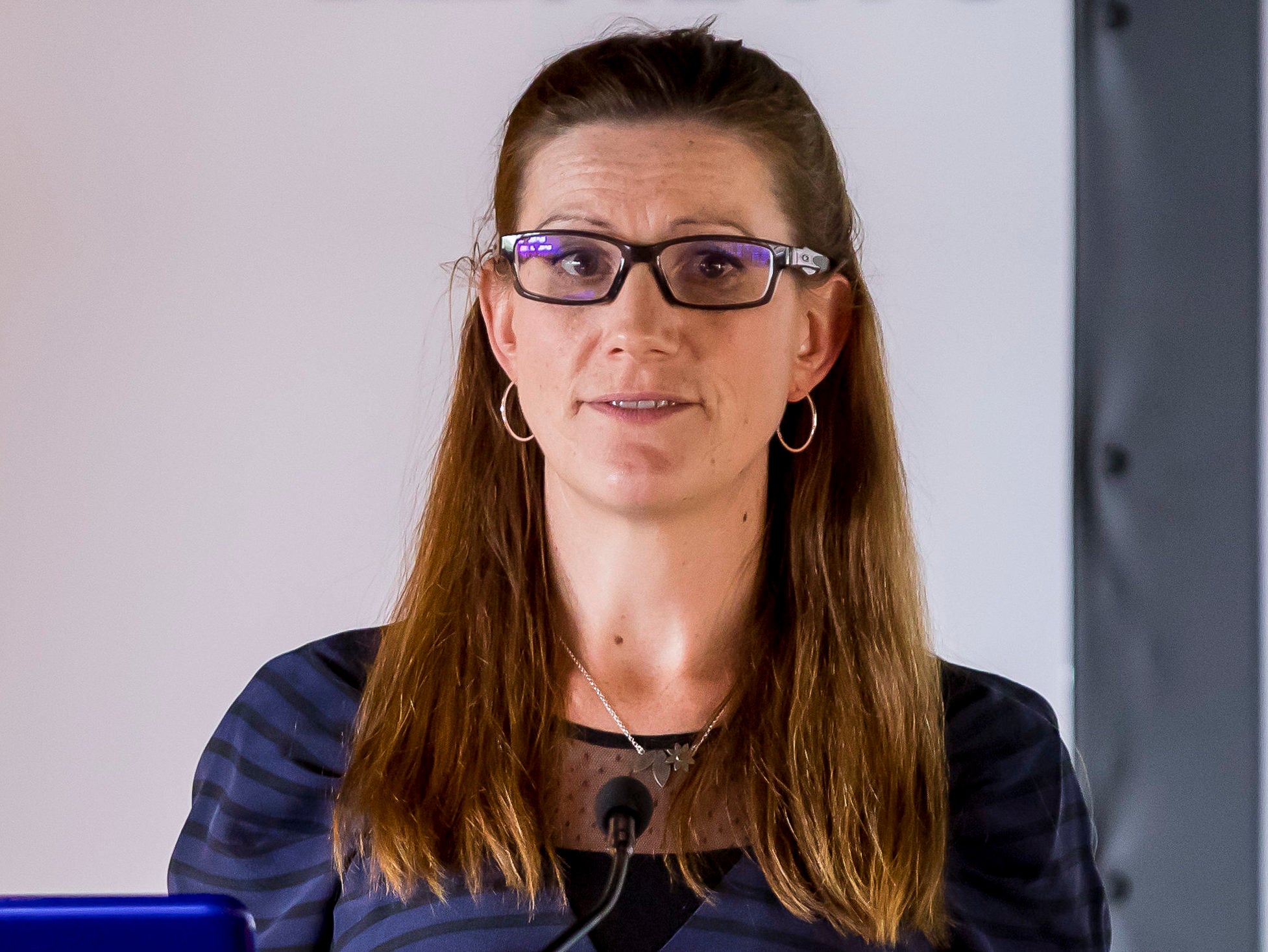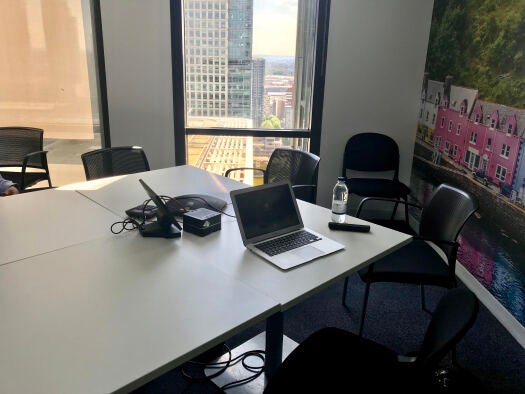
Reach regionals digital editor-in-chief Alison Gow (pictured), 48, speaks to Press Gazette about newsroom tantrums, office dogs, how we’re all better journalists now and the need to promote women and people of colour…
What made you want to become a journalist?
It was more what I didn’t want to do – I definitely didn’t want to go to university.
The school careers teacher, who was possibly the least interested person in her job I have ever met, suggested I try working for a local newspaper based on my A-Levels and the fact my mother worked there.
I didn’t really have any other ideas about what I wanted to do and a week later I arrived for my first day – becoming an enormous liability to the two-person editorial team. They were superstars, on reflection.
What is it you enjoy most about journalism?
Aside from the people I worked/work with, I enjoy the variety. I have a very low tolerance for routine and the variety of my various roles has been enormously important to me.
I have worked with some lovely, brilliant, clever people who invested a lot of effort and patience in making me a better, more professional and effective journalist, and manager of news teams. I love the alchemy of a team of journalists working to cover a major breaking news event.
What is the one thing you couldn’t do without as a journalist, and why?
My husband. He’s not a journalist but over the course of nearly three decades living with a journalist he’s got a pretty holistic view of the industry.
When I’ve been grappling with challenges – especially around leading through change – he’s a great sounding board. He’s also good at helping me regain perspective when it’s accelerating over the horizon.
How long have you been a journalist?
Thirty years.
How did you start out?
I was an indentured apprentice and did a three-month block release at Cardiff Journalism School as part of that.
My first paying journalism job was as a junior reporter on the Tenby Observer (£30 a week) and my first break came a year after that when the Western Telegraph offered me a job as a trainee reporter, which included NCTJ training.
Then, in 2007, I discovered that everything I thought I knew wasn’t worth a hill of beans. That revelation came courtesy of a 12-month digital leaders course, when I was deputy editor of the Liverpool Daily Post.
I think without that humbling, eye-opening and immersive plunge into the world of digital platforms, audiences engagement, and disruptive innovation, I’d probably be doing something else for a living right now.
Away from work, which newspapers, TV or radio news do you consume and why?
I listen to podcasts all the time, because my job involves a lot of travelling and it’s an efficient way to keep up with ideas and current affairs without involving screens.
I rarely pick up a newspaper but I use news apps avidly – Mirror Online, The Guardian, Daily Mail, Huffington Post and BBC are my go-tos along with our regional brand apps, because of course.
My Facebook is dominated by our regional news pages and groups – Newsfeed is literally just that – and I have Twitter media lists, plus eleventy billion push notifications and newsletters.
So I don’t really seek out news through the day – it’s just there, all the time. Getting away from it requires more effort.
TV is mostly films and box sets. Radio is BBC Radio 5 or whatever traffic reports the DAB latches on to while I am driving.
What piece of work are you most proud of, and why?
Playing a small role in the digital transformation of our regional newsrooms. Working in any disrupted industry, at any level, is hard! You can’t ever be complacent or think “that’s it, we’ve done it” because the world shifts, or what you know of it shifts, and you start the process again.
I can’t believe how far we’ve travelled, culturally and operationally – I don’t know what will come next but I feel we are better journalists now. We listen more, react faster, have bigger audiences we talk to more openly and regularly than ever – as a result of the tumult of recent years.
What’s your biggest mistake / regret in your career?
I regret my parents didn’t live to see me make editor.
What’s the most outrageous thing you’ve witnessed in a newsroom?
Outrageous behaviour used to be indulged – I’ve seen people throw everything from strops to typewriters but a tantrum is never an edifying spectacle. I’m much more impressed by fun and kindness in a workspace.
Personally, it’s always a red letter day if there’s a dog in the office – there should be more dogs in newsrooms.
If you could change one thing about the UK media industry today, what would it be?
Our newsrooms and manager structures need to reflect not just our audiences but those who don’t engage with us right now because we have nothing relevant for them.
Close the gender pay gap, promote more women in very senior roles, appoint more people of colour in very senior roles, think about how editorial decisions are probably being influenced by the lack of different experiences and voices in the newsroom or management team.
I am so bored of the media mono-culture. I don’t know why this needs to be part of a strategy – it’s not complicated. Just be better.
Any top tips for aspiring journalists?
Consider what training you want, how you will fund that, and how it will help you get the career you want.
Do you want to go to a journalism school? Might an on-the-job apprenticeship suit you better? Even if you want to work for mainstream media, have an entrepreneurial streak and don’t assume your future is set.
You can determine where you work and the type of journalism you want to do – that may be in a local newsroom, it may be in a major broadcast company, an online platform, or it might be your own start-up.
Also, work hard on building your online networks and leverage them.
Show us your workspace

Picture: Reach
Email pged@pressgazette.co.uk to point out mistakes, provide story tips or send in a letter for publication on our "Letters Page" blog
